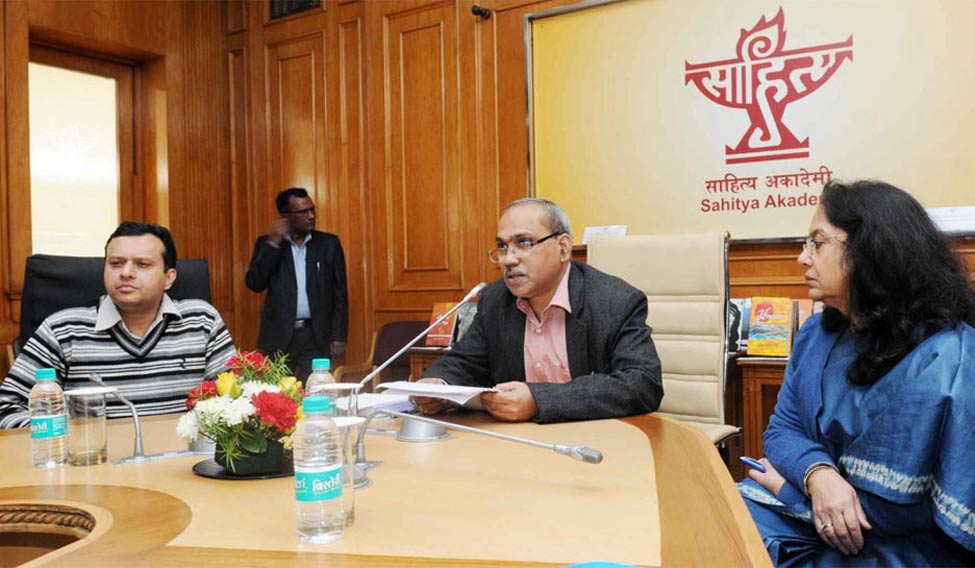The Sahitya Akademi on Thursday announced its annual awards in 24 languages, but the family of late Tamil poet Inqulab has decided not to accept the award.
Inqulab, who was born as Shahul Hameed, won the Sahitya Akademi Award in Tamil for his collection of poems titled Kaandhal Naatkal.
"My father was not running behind any award. He wrote expecting action by authorities against him and not expecting any award. He had told us that he will decline the Sahitya Akademi award, if he was given one," said S. Inqulab, Assistant Professor at Quaide Milleth College near Chennai.
"My father would have certainly declined the award if he was alive today. If we accept the award now, it will be an insult to him," he added.
He said the late poet had returned the Kalaimamani Award given by the Tamil Nadu government to protest against the state government's alleged failure to protect Sri Lankan Tamils.
This is not the first time, the awards have stoked controversy in the last few years.
According to the Ministry of Culture, 39 writers have returned their Sahitya Akademi awards during the last three years claiming that the Akademi "kept silent" when their freedom of expression was "under attack".
This year, seven novels, five collections each of poetry and short stories, five works of literary criticism, a play and a book of essays were chosen for the award.
Inqulab was named along with Udaya Narayana Singh (Maithili), Bhujanga Tudu (Santhali), Devipriya (Telegu), Shrikant Deshmukh (Marathi) for poetry.
Authors Jayanta Madhab Bora (Assamese), Afsar Ahmed (Bengali), Rita Boro (Bodo), Nachhattar (Punjabi), Niranjan Mishra (Sanskrit) won the award for their novels, while Shiv Mehta (Dogri), Autar Krishen Rahbar (Kashmiri), Gajanan Jog (Konkani), Gayatri Saraf (Odia), and Baig Ehsas (Urdu) bagged it for the short stories.
While Dai won the award for her English novel The Black Hill, Ramesh Kuntal got it for his literary criticism Vishw Mithak Sarit Sagar in Hindi.
The writers who won the award for literary criticism are Urmi Ghanshyam Desai (Gujarati), T.P Ashoka (Kannada), Bina Hangkhim (Nepali), and Neeraj Daiya (Rajasthani).





